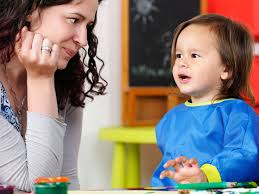
Emotional Intelligence – Tips for Parents
It’s not always easy to understand our feelings, and it can be even more difficult for children to understand and express theirs. As parents, it’s important to help our kids identify and communicate their emotions, so they can learn how to cope with them in a healthy way. This can be a challenge, but with some simple techniques, we can help our children develop emotional intelligence and grow into healthy adults. Keep reading for tips on how to do just that!
It can be difficult for both adults and kids alike, but communicating about our feelings is essential to developing emotional intelligence. This is especially true because it allows us to express ourselves without acting out or lashing out at others when we’re feeling angry, frustrated, or stressed.
Helping children understand their emotions can help them manage them better in the future, too. For example, when your child is upset or angry about something that happened at school and you ask them how they feel about it in order to help them identify their emotions first before responding with empathy (rather than frustration), they’re more likely to be able to cope better because of the recognition process itself.
Don’t pepper them with questions about who did what and why didn’t they do this or that! That tends to negate their feelings. There are a few different things we can do as parents to help our children develop emotional intelligence.
1- We should always be role models for them and express our own feelings openly and honestly. This will help them feel comfortable doing the same when they’re older.
2- Provide words to describe emotions so that kids have the language to identify and express their feelings in the future. There are many great feelings charts that are available that can be used at home to help young children identify their feelings.
3- Be an attentive listener because listening is one of the most important aspects of communication–it allows us to understand and empathize with what others are feeling or going through before responding appropriately ourselves!
When parents are role models for their children, they learn to express feelings openly and honestly. This will help them feel comfortable doing the same when they’re older. Kids also pick up on how their parents respond in different situations which can influence how they react themselves later down the line; so if you want your child to be able to discuss emotions make sure you keep your own emotions in check.
We don’t have to solve all our children’s problems. Helping them go through these feelings is more valuable to try to avoid them by going around them and not allowing our children to be sad.
Above all remember feelings are not bad or good, they just are. They eventually pass and giving children some perspective without minimizing their present feelings is invaluable. The important thing is for children to learn how to identify their feelings and understand what they mean. This can be done in a variety of other ways too. Our online masterclass will give you more ideas on how to help your child grow emotionally and thrive. Are you ready to join us?




